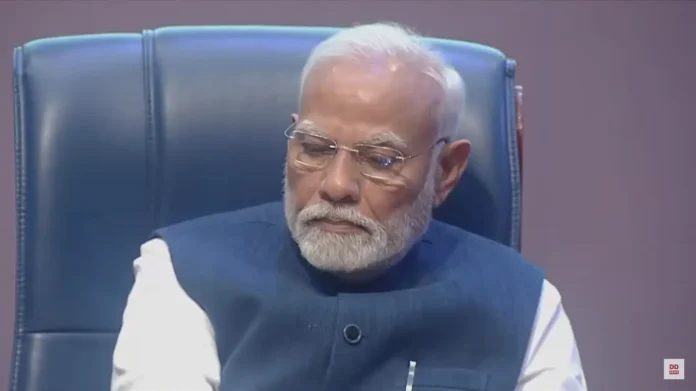The Delhi High Court on Wednesday expressed its strong dissatisfaction over the delay caused by the petitioners in filing appeals seeking disclosure of information related to Prime Minister Narendra Modi’s bachelor’s degree from Delhi University (DU).
Noting that the appeals had been filed well beyond the period of limitation, the Division Bench of Chief Justice Devendra Kumar Upadhyaya and Justice Tushar Rao Gedela said that it would address the issue of delay before considering the case on merits.
The High Court directed DU to file its objections to the application seeking condonation of delay within three weeks and granted the appellants two weeks thereafter to file their response. It listed the matter for further hearing on January 16.
The petitioners, including AAP leader Sanjay Singh, RTI activist Neeraj Sharma, and Advocate Mohd Irshad, moved the Division Bench of the High Court, challenging a single-judge Bench order that set aside the Central Information Commission’s (CIC) directive requiring DU to disclose records of students who had passed the Bachelor of Arts (Political Science) course in 1978—the same year the Prime Minister is stated to have graduated.
On August 25, 2024, the single-judge Bench of Justice Sachin Datta held that academic records such as degree certificates, mark sheets, and results fell within the ambit of personal information under Section 8(1)(j) of the Right to Information Act, 2005, and were, therefore, exempt from disclosure.
The High Court further noted that merely holding public office did not make an individual’s private information subject to mandatory public scrutiny.
The petitioners contended that the single-judge Bench order suffered from fundamental legal errors. They argued that the exemption under Section 8(1)(j) did not apply to information whose disclosure served a larger public interest, as envisaged in the proviso to the same section.
They argued that information concerning the educational qualification of a constitutional functionary could not be considered purely private, as it was related to the transparency and integrity of the functionary’s public life.
Appearing for DU before the Division Bench, Solicitor General Tushar Mehta said that he would file formal objections to the plea for condonation of delay. He further apprised the High Court that the DU was ready to address the matter on merits, once the procedural issue of limitation was resolved.
In 2016, RTI activist Neeraj Sharma filed an application under the Right to Information (RTI) Act seeking details of all students who passed the Bachelor of Arts (Political Science) course from DU in 1978, including names, roll numbers, and marks obtained.
The University’s Central Public Information Officer (CPIO) denied the request on the grounds that the data constituted third-party information under Section 11 of the Act.
In December 2016, the Central Information Commission (CIC) directed the varsity to disclose the requested information, holding that such records constituted public documents under Section 74(1)(ii) of the Indian Evidence Act, 1872. It further observed that universities, being public authorities, were bound by the transparency mandate of the RTI law.
DU challenged this order before the Delhi High Court in January 2017. Justice Datta stayed the directive, accepting the argument that academic records were held by educational institutions in a fiduciary capacity and that their disclosure could have wide-ranging implications for the privacy of millions of students.
The single-judge Bench of the High Court ruled in favour of the University, leading to the present appeals before the Division Bench.
The Division Bench observed on Wednesday that it would first determine whether sufficient cause had been shown for condoning the delay under Section 5 of the Limitation Act, 1963.
The High Court said that only upon satisfaction of this procedural requirement would it proceed to examine the substantive issue—whether the disclosure of the Prime Minister’s academic records falls within the purview of the Right to Information Act, or whether it was exempt as personal information protected by the right to privacy under Article 21 of the Constitution.


